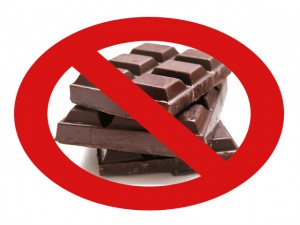11 Mar Your Questions – Answered
 Q. Can you suggest what & when we should be eating pre/post training sessions? Especially as many sessions are over dinner time.
Q. Can you suggest what & when we should be eating pre/post training sessions? Especially as many sessions are over dinner time.
Good question. Many athletes with regular (long) office hours find themselves in this situation and we do our best advise them.
Pre – Training
1) Depends a little on what you had for lunch. If you’ve had a ‘full meal’ at lunch (ie – not grazing) then you may not need much at all. If you do feel hungry, make sure it’s not thirst you are feeling and sip away at a large glass of water/ 0 carb electrolyte drink like Nunn. Choose the 2nd option – especially if you have trained in the morning.
2) If you are peckish and feel like you need a little boost of energy before training, a few pieces of fruit is great. You can also try a small bag of Almonds / Trail Mix or a pot of yoghurt. Basically something that is small in volume and calorie dense that will not hang around in your tummy for ages.
3) If you are starving and/ or hypoglycaemic, your best bet is go for something with a bit of fat in it, like a chocolate croissant, to fill you up and give you the energy you need to get you through your session.
4) Stay away from caffeine in the early evening, even if you love the buzz that coffee gives you during a training session, because this will really mess with the sleep signals when it is time to turn in.
Post- Training
 The main consideration is that you want the right mix of nutrients for recovery but not such a large quantity so that you are feeling too bloated to turn in at a reasonable time. With this in mind, you won’t be far off it you follow these principals.
The main consideration is that you want the right mix of nutrients for recovery but not such a large quantity so that you are feeling too bloated to turn in at a reasonable time. With this in mind, you won’t be far off it you follow these principals.
1) Eat as soon as possible after the session to give you as much time as possible to digest it. It’s a good idea to get a recovery drink in as soon as you finish your session to take care of the immediate replenishment. This will also help to moderate your appetite for when you get home and want to have some proper food.
2) Ideally you’re looking for a meal that will fill you up (so you’re not hungry), is packed full of antioxidants and vitamins (for recovery) but is easily digested (so you can get to bed). For protein, I like fish over chicken over red meat at this time of night. I try to get a sizable portion of veggies – the more colourful the better – as this will fill me up nicely but not sit around in my tummy for ages. Veggies are nutrient dense and a source of carbs as well so this is a better option than filling up on refined carbs (pasta and rice) alone. Get some oil/ fat in there as well (salad dressing/ butter/ cheese) to help aid digestion and absorption of fat soluble vitamins and to help you feel full.
If the cupboard is bare, I turn to 2 pieces of Vegemite on buttered toast, cheese and 2 half boiled eggs.
3) Have just enough to cover your recovery needs. While at first this may sounds a little vague, if you pay attention to how your tummy feels relative to your activity levels for the rest of the night, you will get a good feel for what is just right for you. Work backwards from the time you want to get into bed and plan to have an emptyish feeling tummy by then.
4) Lastly and most importantly – Beware the late night sugar craving! We often wreck our entire days’ worth of good eating right at the end with the last and fatal grab for ‘just a taste of’ ice cream/ chocolate/ wine/ cereal/ muesli/ fruit. Don’t kid yourself; the last couple of options are sources of sugar as well!
What is happening is that while you are physically tired from a big day, and your body is telling you to start getting ready for bed, your brain on the other hand, especially if you’re plonked in front of the TV or Email or Facebook (low energy expenditure but high level mental stimulation) is active and needs more quick release energy to stay awake for longer. We tell ourselves that we’re ‘unwinding’ and we ‘deserve it’ and ‘it won’t make that much of a difference cos we’re training tomorrow’ as we reach for that late night nibble (as long as it’s dark chocolate it’s alright, right?). All this time, the remnants of that sneaky little shot of coffee that I warned you about earlier, is still floating about in there urging you on.
This is the worst time to spike your blood glucose levels because it triggers a release of insulin which in turn switches your metabolism towards storing fat. The last thing you want is to go to bed with high levels of blood insulin. High insulin levels also signal the body to stop producing Human Growth Hormone (HGH) which is a desirable by-product from the solid strength session that you’ve just put in. HGH is a big player in the physiological adaptation and recovery of muscles and we want it to be at high levels as we go to sleep.
Essentially, there is a disconnect between body and brain and what is actually a signal to start the process of going to bed, is misinterpreted as a sugar craving so that you can stay awake for longer.
 Q. When you are slightly injured, is it better to keep pushing and risking to lengthen your recovery time, taking it slowly but still exercising on it or take time to recover?
Q. When you are slightly injured, is it better to keep pushing and risking to lengthen your recovery time, taking it slowly but still exercising on it or take time to recover?
Tricky question because it really depends on:
1) What you mean by ‘slightly injured’
2) Are you training for an A race and how far off it it
3) How and when the injury presents itself
4) How long have you been ‘slightly injured’ and
5) Is this particular injury a recurring issue?
Without knowing details, I would rest it for 2 – 4 days completely and take it for a test run after this. In the meantime, if it is a leg injury, do lots of swimming with pull-buoy and mix up the type of sessions you do; long steady aerobic endurance with short hard ‘strength’ style session, to keep the hormonal balance ticking over – so your body doesn’t entirely shut down. If it is a ‘muscular’ type of injury, spend time on the foam roller and / or go and have one or 2 session of sports (deep tissue) massage.
If you want to / need to train through the injury, the general rule is err on the side of safety and while getting the essential volume done, hold back the intensity to ‘safe’ levels and take the extra steps when it comes to recovery. Ice/ massage/ eat well/ more sleep/ no double days.
And the same when once in a while you wake up in the morning or you had a big big day/week at work: is it better to push, or listen to your body (and not your mind) that says STOP?
IF you have learnt how to listen to your body (mind can play tricks) then listen to your body! If you catch it early enough, just one or 2 days off training with early nights and you will feel fine again with minimal loss to your fitness.
If you are not sure if you’re just being a little ‘lazy’ and unmotivated, then I suggest you force yourself to head out and take your body for a 20 min ‘test run’. Often, at substantial training fatigue levels, your body will feel sluggish for the 1st 20 – 30mins of a training session because of the background fatigue that you are carrying around. It is only when all the systems are switched on that your body ‘wakes up’ and you realise that you feel fine.
If you still feel terrible after 20 mins (usually your warm up and the 1st few repetitions), and if you are honest with yourself, you will know whether or not to pack up, take the day off and get on with the rest of your day.
If you know you’re a little compromised, but not completely dreadful either, cap the session at 40 mins, including your warm up and cool down. So you decrease the training load (total number of repetitions and/or time and ease up on the absolute intensity) of that day’s session to minimize the impact that it will have on your immunity. It is still worth mixing up the effort levels but take a conservative approach, erring on the safe side, to simply ‘get it done’.
If you feel normal, albeit still a little tired and not fantastic, carry on and complete the session as best as you can but do not push for a training breakthrough on these days.

